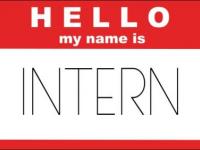This internship fell into my lap just when I thought I was not going to find anything to fulfill the fieldwork requirement for my Master of Library & Information Science degree from the University of Wisconsin-Milwaukee. I live in the great state of Montana, which is large in area but NOT in population or infrastructure. Major towns - of which there are probably only four - are 100+ miles apart. Trying to complete 150 hours of fieldwork is not realistic because the distances are so great. I live in Great Falls, and while it may be a town of over 60,000, there really is a lack of archival institutions in which to complete any meaningful project.
Distance is only half of the issue as well. Montana is an "outdoor" state, meaning most people come to Montana to recreate and live in the natural world. High tech infrastructure in archival repositories is minimal at best. There really is no archival institution that can offer remote access to collections or has the staff resources to oversee a student remotely. Alas my need for a virtual internship outside of Montana.
The project I have been working on with another student since September is describing the Edith Madeira collection. The collection is made up of mostly a scrapbook of images from World War I and transcripts of letters that Edith wrote to friends and family members during her time as a field nurse for the Red Cross Commission to Palestine. First, we began by describing the many photographs and other pieces of ephemera in Edith's scrapbook. I found this slow-going at first because I didn't know if I was saying too much or not enough about each image. Also, attaching accurate subject headings was tricky because the obvious subject heading may not have been in the Library of Congress subject headings or you really had to be creative with pulling out obscure subject matter.
Once the images were complete we moved on to the transcripts of Edith letters. I enjoy reading Edith's letters and seeing how language and culture have changed since 1918. I also find it fascinating to read about World War I through Edith's own words. There was still such a formality about the world and how people interacted - even during wartime. I felt more comfortable describing the letters than I did the images. The challenge though was not to rewrite the letter in the description field but still hit the pertinent points of the letter so that enough detail was given for users who may be looking for information about this time period or subject matter. Subject headings were far easier to find, though in a 14-page letter they could be numerous.
I feel as though I have only just begun to develop my skills for description by working on this collection. The most significant drawback to working remotely is that you can't just run to the shelf to look at an image or object to get a better understanding of just what it is. But all in all, I have had an extremely positive experience and Matt Shoemaker has been delightful to work with. I truly appreciate this opportunity and I am happy that I have contributed to the preservation of this charming collection...from Montana that is!

